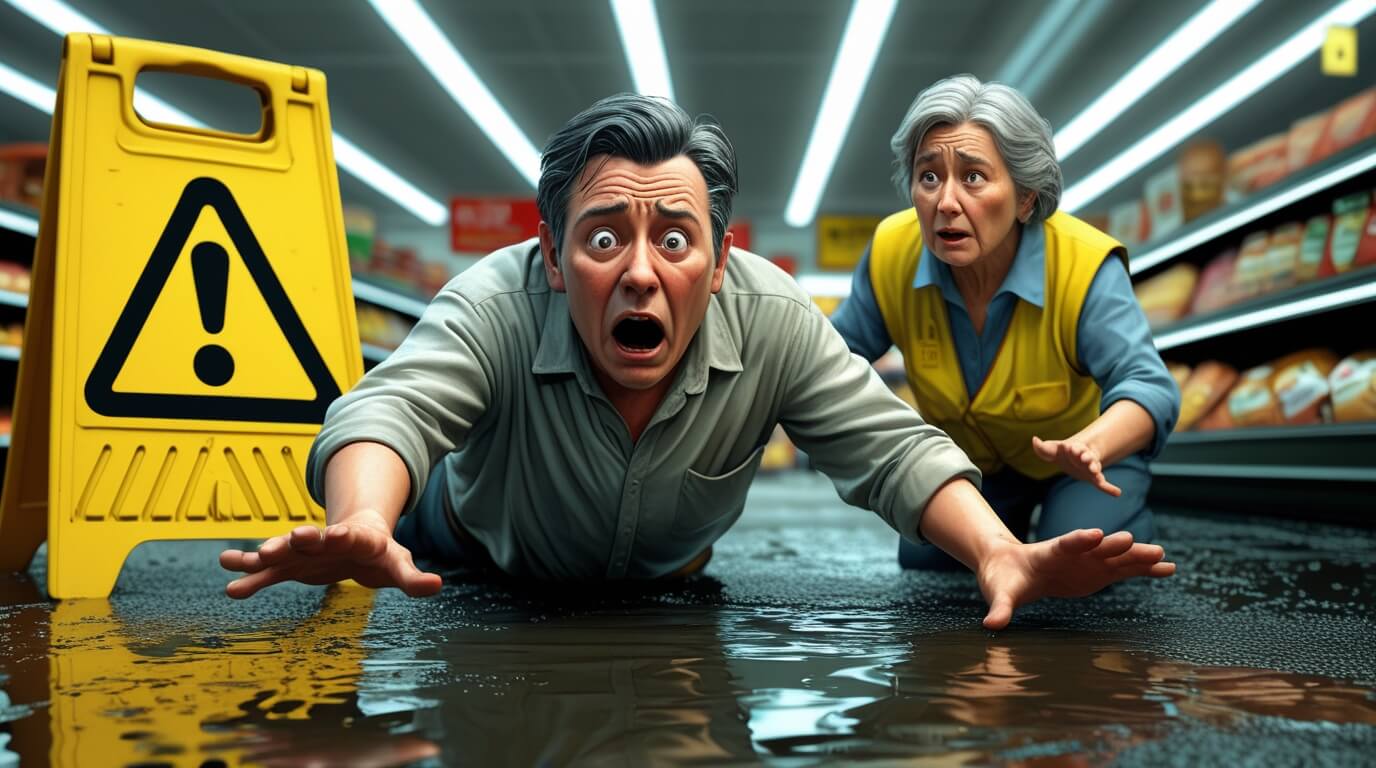September 18, 2025

Slip and fall accidents can result in serious injuries, including fractures, head trauma, or back problems. These incidents often fall under premises liability law, which holds property owners accountable for maintaining a safe environment. If you’ve been injured in such an accident, taking immediate steps can protect your health and legal rights, potentially helping you pursue a successful claim.
Your health is the number one priority after a slip and fall. Even if you feel okay initially, it’s crucial to see a doctor as soon as possible. Some injuries—like concussions, whiplash, or soft-tissue damage—may not be immediately apparent but can become more severe later on. Ignoring them could jeopardize both your health and your claim.
For more information on what to expect after an injury, refer to the National Safety Council’s Fall Prevention Guide, which offers detailed tips on preventing and handling falls, particularly for older adults.
Immediately notify the property owner, manager, or supervisor about the accident. Request that they write a formal report of the incident, and make sure you get a copy for your records. This report is a key piece of evidence if you decide to pursue a legal claim later.
Whether it's a retail store, a business, or a private property, timely reporting helps establish the facts and demonstrates that the owner was made aware of the hazard.
To build a strong case, you need to document the scene of the accident thoroughly. This may involve:
Taking prompt action ensures that critical evidence isn’t lost, especially if the property owner cleans up or repairs the hazard.
For more on gathering evidence in personal injury cases, check out Our Process: What to Expect During a Personal Injury Lawsuit.
It’s important to stay calm and factual when discussing the accident with property owners, employees, or insurance representatives. Avoid saying anything that could be used against you later, such as “I wasn’t watching where I was going.” Statements like these can be misinterpreted and weaken your case, even if the fall was not your fault.
Keep thorough records of your medical bills, treatment plans, and proof of lost wages due to your injury. These documents are essential for establishing damages and calculating fair compensation. They also demonstrate the impact the injury has had on your life.
Preserving detailed records can make a significant difference in how your case is evaluated and ensure that you are compensated for both direct and indirect losses.
Slip and fall cases often involve proving negligence on the part of the property owner or manager. An experienced personal injury attorney can help investigate the incident, collect further evidence, negotiate with insurance companies, and, if necessary, file a lawsuit to ensure you receive the compensation you deserve.
For more information on how to choose the right personal injury lawyer, check out How to Choose the Right Personal Injury Lawyer.
If you need further insights into personal injury claims or legal strategies, you can refer to external resources like the U.S. National Library of Medicine's guide on personal injury claims, which provides valuable information on the legal processes surrounding injury cases.
After a slip and fall injury, acting quickly is essential to protect your health and strengthen your legal claim. Seek immediate medical attention, document the scene, and contact a trusted personal injury lawyer to guide you through the process. Prompt action can improve your chances of a successful outcome, ensuring you receive the compensation you deserve for your injuries.
Stay up to date with the latest tips, expert insights, product reviews, and step-by-step guides to help you grow, create, and succeed—no matter your industry or passion.